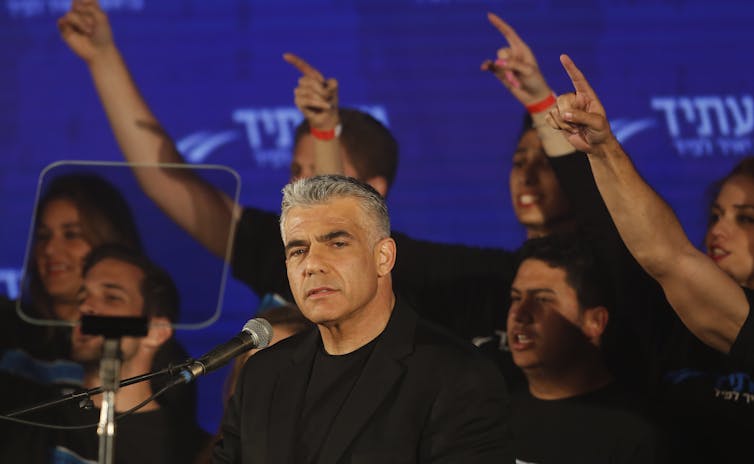A few months ago, I wrote about the killing of Muhammad Ali-Kosba by colonel Yisrael Shomer, the Israeli military commander in Ramallah and one of the top military officers in the West Bank. All charges against him have now been dropped: a statement by the military prosecutor dubbed the event a “professional error, not a criminal incident”.
Now comes another killing by an Israel Defence Forces (IDF) soldier: the shooting of Abdel-Fattah e-Sharif, a Palestinian who allegedly stabbed an Israeli soldier at a checkpoint in Hebron. E-Sharif was lying on the ground incapacitated when he was casually shot in the head by military paramedic Elor Azaria, who later told a fellow soldier that e-Sharif “deserved to die”.
This unleashed a storm in Israel. Soon after e-Sharif’s death, journalist Gideon Levy penned an op-ed in the Haaretz newspaper arguing that both the Ali-Kosba and e-Sharif killings make a mockery of the IDF’s venerable “purity of arms” doctrine, which states that IDF soldiers will “maintain their humanity even during combat”. Levy immediately faced a hail of invective – much of it from opportunistic political figures keen to curry favour with the increasingly hawkish Israeli public.
Leading the charge against Levy is former finance minister and prime ministerial hopeful Yair Lapid, who took to Facebook to accuse Levy’s newspaper Haaretz of being anti-Israeli and of legitimising terror, and castigating it for doing so in the English language.
The animus behind these angry sentiments is all too familiar: Israeli politicians on all sides have long been fixated on the gap between Israel’s domestic debate and its image abroad. International discourse, the argument goes, is always biased against Israel, and all Israelis who engage in it should flatter the country’s established image: Israeli society is vibrant and democratic, and the treatment of Palestinians and the occupation are side issues that could have been solved if it weren’t for the other side’s intransigence.
But just as early Zionist historiography falsely insisted that the indigenous Palestinian population was mostly composed of recent immigrants, “Palestinian intransigence” is also something of a confection – and it no longer gets the international credence it once did.
Digging in the hole
As the Israeli government has deepened and broadened its control over the occupied West Bank, it has so eroded the world’s sympathy for Israeli policy that even the US has professed its “overwhelming frustration”.
And all the while, domestic debate has been marked by crackdowns on dissenting views. Public calls to boycott are now illegal and the commemoration of the 1948 Palestinian Nakba, when hundreds of thousands of Palestinans fled or were forced from their homes, is a fineable offence. Human rights NGOs are the subject of creatively harsh fiscal legislation, Arab members of the Knesset are in danger of being expelled from their seats, and the educational system is becoming ever more steeped in the government’s brazen expansionism and fundamentalism.

All the while, the imperative to burnish Israel’s sympathetic global image trumps any other concerns. As Lapid stated on his Facebook page, Levy’s article would have been fine if only it “would have been published only in Israel and only in Hebrew”.
Soon afterwards, the right-wing website Mida wrote of the danger of such an “extreme” organ as Haaretz being read by foreign audiences, especially because “all the thinking people and the really important people are part of this audience”.
These latest tirades are part of a strategy now beloved by the Israeli opposition: extravagant diplomacy as domestic politics.
Wannabe diplomats
The Israeli foreign service is in chaos. Its jurisdiction is divided between six different government offices, and it’s headed by Tzipi Hotovely, Israel’s deputy foreign minister, who argued that Palestinians may be under the influence of Islamic State. The government has also been humiliated by its failed attempts to appoint a known settler leader as an ambassador to Brasilia and an ongoing struggle to appoint a former Italian MP to Rome.
This leaves a space for opposition MPs to practice diplomacy as PR, proving to the Israeli public that they alone can mend Israel’s global reputation.
Among the centre-left Zionist Camp alliance, Labour member of the Knesset Erel Margalit boasted about confronting Jeremy Corbyn with some harsh truths at the British Labour Party conference, while former foreign minster Tzipi Livni has taken to defending Israel on US campuses, and has even been mending fences with Sweden. But the master of this strategy is undoubtedly Lapid, who is framing himself as the official alternative foreign minister and is battling what he termed the “diplomatic intifada” and the “media intifada”.

Lapid has already fought battles in Iceland, Washington and Brussels. And even though his English is not nearly as polished as Netanyahu’s, he’s taken to BBC’s Hardtalk programme to defend the IDF against accusations of extrajudicial killings.
All these achievements are then translated and promoted via his Facebook page in polished form, often greatly inflating his importance. In February Lapid took credit for the removal of anti-Israeli posters from the London Underground: “Since the Israeli government, as usual, did nothing, I talked to [Boris] Johnson, a great friend of Israel …” He didn’t mention that these were unapproved fly-posters set for removal anyway.
Playing to the crowd
But given the state of public opinion in Israel, this foreign performance can only endure for so long. Thousands of Israelis rallied in Tel Aviv in honour of Abdel Fattah e-Sharif’s executioner, Elor Azaria, and protested against his indictment. Such a demonstration of support of the perpetrator of an apparent war crime would be very difficult for the volunteer diplomats of the opposition to explain to the rest of the world.
The truth is that recent polling data indicates that more than half of the Jewish population supports extrajudicial killings – and opposition leaders know this all too well.
It explains why the Zionist Camp’s notionally centre-left leader, Isaac Herzog, has been promoting a plan under which East Jerusalem would be de-annexed and the residency status of some 200,000 Palestinians in Jerusalem revoked. He’s also railed against the perception of the Zionist Camp as “Arab Lovers”.
And Lapid’s strategy of policing the national discourse and reporting back triumphantly on his foreign excursions is working: after the disappointing 2015 elections, his party has rallied remarkably in the polls. But whatever the short-term payoff, pandering to the hawkish turn in popular opinion is highly dangerous. It was Lapid himself who joined in the choir of incitement and said in October 2015 that “you have to shoot to kill anyone who pulls out a knife or screwdriver”.
With politicians like Lapid openly supporting extrajudicial killings within the domestic conversation, Israel needs voices to rail against accusations of extrajudicial killings from the outside world. Fortunately, politicians like Lapid are all too happy to do both.

